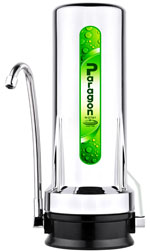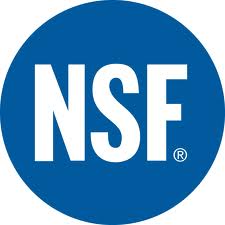 Water filters | Should I use one?
Water filters | Should I use one?
A water filter basically eliminates a range of impurities from water typically used for drinking or cooking purposes. A water filter can improve the general taste, smell and appearance of water and are an inexpensive and easy method of water purification.
Are there any benefits to using a water filter?
A water filter, as well as improving the taste, smell and appearance of water, can also eliminate contaminants (for example: organic chemicals or heavy metals) and help get rid of hardness caused by minerals.
Do I need to use a water filter?
Typically, water that comes from your local municipal treatment plant meets all health and aesthetic standards. However, if your home has old lead piping or solder, there may be some traces of lead present in your drinking water. If your home is located in an old neighbourhood, you should test your drinking water for lead content.
Also, when Chlorine is added to water to kill bacteria, it also reacts with ammonia and some chemical to form these 2 harmful substances. They are known as Chloramines and Trihalomethanes (THM’s) which are documented as cancer risks products and make way to our bodies and skin. Fortunately, these 2 harmful substances solidify and thus cannot pass through our filters so they can be removed by proper filtration.
Are there different types of water filter?
There are many point-of-use water filters for domestic purposes available today, but there are three main types of water filter:
1. Particle filters which use a membrane to trap particles. These filters are given a rating according to the size of the pores in the membrane. A membrane with a low rating has smaller pores and the filter will be more effective. There are two common types of particle filters: Fibre filters, which trap larger particles like dirt, but allow dissolved contaminants like lead and mercury to pass through it. Ceramic filters, which trap asbestos fibres, bacteria, parasites, and other particles, but will not remove dissolved chemical contaminants like sodium.
2. Activated Carbon Filters (AC) are the best for removing organic contaminants, together with dissolved substances like hydrogen sulphide , and traces of heavy metals: lead, mercury and copper for example. More on using carbon in water filtration>
There are two types of activated carbon filters:
Granular Activated Carbon (GAC): These trap particles and remove substances dissolved in the water.
Solid-Block Activated Carbon: These are better than other filters for trapping contaminants like pesticides, chlorine, lead and asbestos.
3. Resin Filters consist of resins that can eliminate contaminants like lead and other heavy metals, as well as the minerals that usually cause ‘scale’ deposits in kettles and coffee makers. Resin filters can be used with activated carbon filters to remove a wider range of particles and dissolved substances.
How will using a water filter affect my water bill?
Your water bill should not be affected by using a water filter. Any cost associated with using a water filter will depend on the type and quality of filter used; the quantity of water that it filters, and the frequency that the filter has to be replaced.
Does a water filter need maintenance?
The level of maintenance will depend on the filter. You should always follow the manufacturer’s specific instructions for that particular water filter.
 Certification
Certification
Certification of point-of-use water filters is governed by two NSF standards: NSD standard 42 covers contaminants that may affect the taste, smell, or colour of drinking water. NSF standard 53 covers contaminants that may be health hazards if present in drinking water at levels above those recommended as safe.
